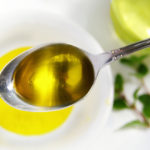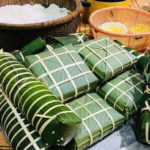Oral diseases have been a popular topic for a long time. In fact, doctors often advise on eating habits to reduce the risk of disease. Oral diseases are not only caused by what foods are chosen, what dishes are eaten, how much is eaten, but also by cooking methods in the family. If your family is familiar with the following cooking methods, the risk of health problems is very high:
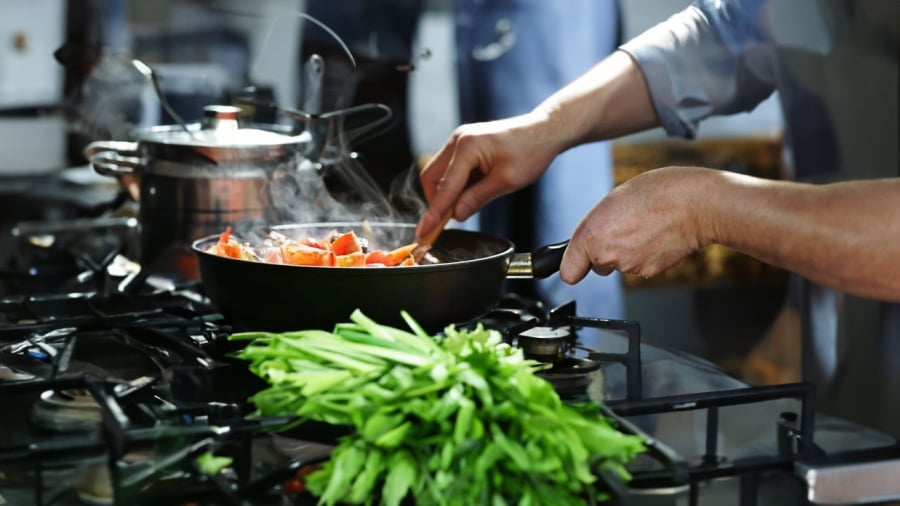
Cooking with electric rice cooker, peeling off the non-stick pan
Non-stick cookware makes it easier for housewives to cook, but when the non-stick layer peels off, it becomes harmful to users. The non-stick layer is usually a Teflon coating, which can be scratched or peeled off after prolonged use. When exposed to high temperatures, it decomposes into toxic substances that can increase the risk of cancer. Therefore, replace non-stick pots and pans when they are damaged or scratched.
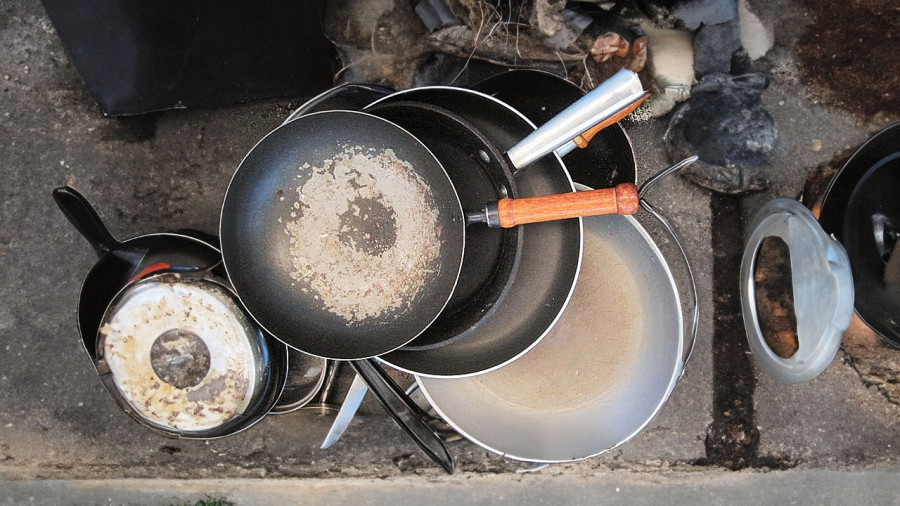
Heating oil too hot
We often think that cooking oil is safe, but when it is heated to the point of smoke, it destroys the vitamins, proteins, and other nutrients in the food. It can also produce cancer-causing substances such as acrylamide and benzopyrene, increasing the risk of colorectal cancer. Moreover, if you pour hot oil into a non-stick pan, it can damage the pan and produce toxic substances. Therefore, wipe the pan dry, pour in the oil, heat it gently, and then add the food.
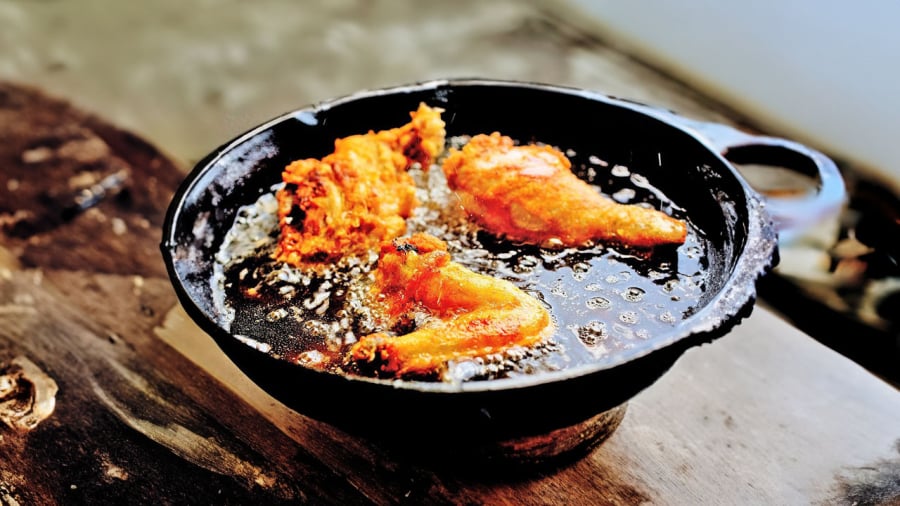
Using one pot or pan to cook multiple dishes without washing
Sometimes, it is convenient to use the same pan for frying vegetables and then immediately stir-frying another dish, putting the vegetables back on the plate, and adding more oil to make an egg and tomato stir-fry, for example. This method saves time, but the pan is not clean, contains a lot of oil and food residues. When the oil is heated at high temperatures, it produces cancer-causing substances and burnt residues, which are harmful to the body. Frying food submerged in oil should be avoided. So, try to avoid this situation.
Frequent deep-frying
Many people enjoy fried food because it is delicious, but making too many fried dishes at home is not good for your health. The fats in fried foods are conversion fats with high caloric content. Consuming too much conversion fat can increase the amount of cholesterol in the blood, increase “bad” LDL cholesterol, and inhibit HDL cholesterol, which is beneficial for health. Eating fried foods frequently increases cholesterol and triglycerides in the blood. This is the main cause of atherosclerosis, cardiovascular diseases, high blood pressure, and diabetes.
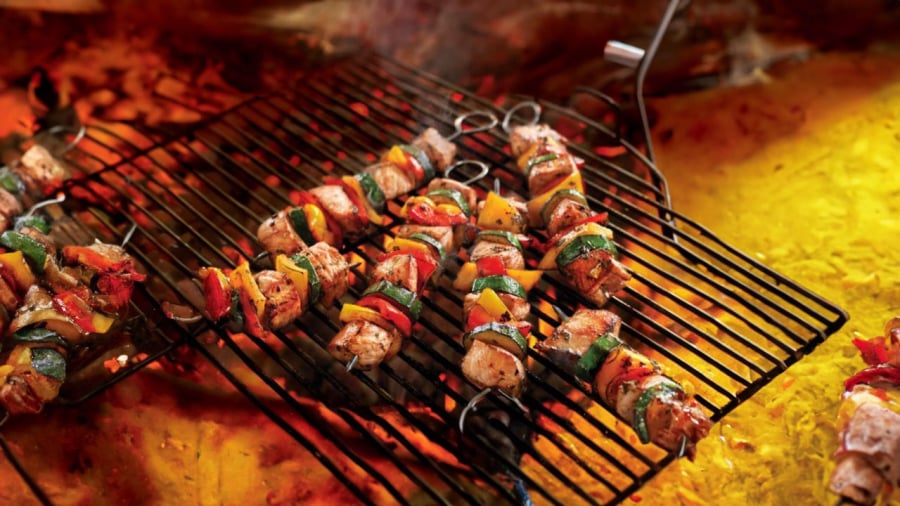
Burning or overcooking grilling and stir-frying
Grilled or stir-fried food with burnt parts often has an appealing aroma, so many families overcook or stir-fry thoroughly. However, when the food is burnt, it produces toxic substances that are harmful to the body and increase the risk of cancer, cardiovascular diseases, and obesity.
Reusing old cooking oil
When frying, we need to use a large amount of cooking oil, and throwing it away seems wasteful, so many people keep it and reuse it next time. They pour the used oil back into the bowl and use it again. This method generates cancer-causing substances such as benzopyrene, acrylamide, and polycyclic aromatic amines. If used for cooking, the level of cancer-causing substances can increase during this process.
Reheating food multiple times
Many families want to save time in cooking, so they cook a large portion and reheat it later. This method reduces the nutrients in the food and creates toxic substances. Storing food in the refrigerator and reheating it in the microwave is also not good for your health.
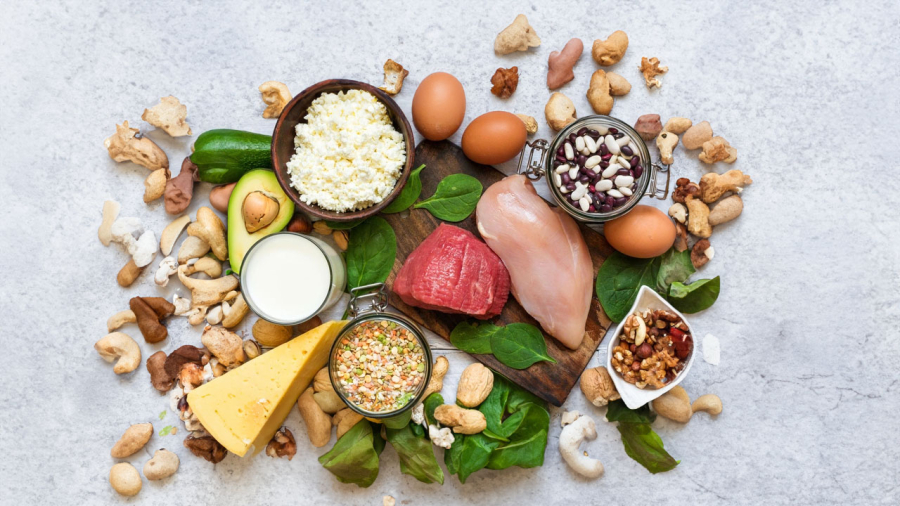
Not replacing moldy cutting boards and chopsticks in a timely manner
Moldy cutting boards and chopsticks in the kitchen can contain harmful aflatoxin, which is 68 times more toxic than arsenic and can cause liver cancer. Scratches on the cutting board can develop hidden mold and are difficult to clean. Many people boil or expose chopsticks and cutting boards to sunlight, but aflatoxin is only destroyed at temperatures above 280°C, so these methods are ineffective. Therefore, clean cutting boards and chopsticks immediately after use, place them in a ventilated area to dry, and replace them in a timely manner when there are clear scratches and mold.
Improper food combinations
Sometimes, we cook out of habit without considering scientific knowledge, so we combine foods improperly. For example, Vietnamese people often stir-fry liver with bean sprouts, but it is a wrong combination that reduces the nutritional value. Another example is potatoes, lotus roots, and yams, which all contain a large amount of carbohydrates. If eaten with rice, it increases the risk of obesity. Rice porridge and pickles are dishes that many people like, but eating them frequently can lead to malnutrition and hidden hunger. Therefore, pay attention to the combination of foods.
Tips on Selecting Healthy Cooking Oil and Safe Ways to Cook with It
A Taiwanese company has made a significant impact on the food industry through the recycling of over 700 tons of dirty oil, which has been exported to over 12 countries, including Vietnam. This has raised a few eyebrows among housewives, as cooking oil is an essential condiment in daily cooking. To ensure the safety and quality of their cooking oil, consumers should take note of the following advice.
8 Common Mistakes People Make with Cutting Boards
Are you using your cutting board correctly? Many Vietnamese households rely on cutting boards in their kitchen, but not everyone knows how to use them properly, especially when it comes to wooden cutting boards. Check out these 8 mistakes to avoid when using a cutting board to ensure both hygiene and safety for everyone in your family.
Is Refrigerated Leftovers Linked to an Increased Risk of Cancer?
Dr. Lam Van Man, Head of Research, Development and Technology Transfer Department of the Institute of Safety Food, has warned of the risk of food poisoning when reheating leftovers from the refrigerator. But what should we be aware of when it comes to the possibility of these leftovers causing cancer? Here, we explore what the experts have to say on the matter and offer some tips for safe eating.
Preserving Leftover Food from the Tet Holiday
With the beginning of the Lunar New Year, many households are stocking up on food to celebrate the festive occasion. While keeping food in the refrigerator is convenient, it can also be harmful to users if not done correctly. We have compiled a few tips to help ensure food remains fresh and safe to consume during Tet.

























